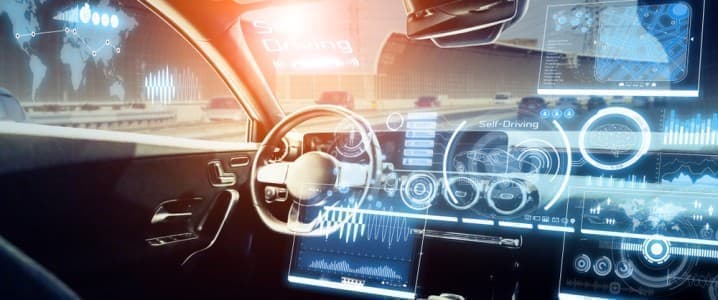Commuter delays, safety concerns, and limited levels of automation are some of the criticisms facing the self-driving taxi industry. After several companies launched pilot schemes over the last couple of years, many have found themselves facing more challenges than anticipated on the road to automated driving. Since the launch of driverless taxi pilot projects in San Francisco there have been a wide variety of complaints about the new vehicles on the roads. They have been blamed for creating more traffic, misjudging hazards – and therefore making the wrong decisions, and getting in the way of the emergency services. While there have been successful pilot schemes in some areas, other settings are more challenging. Waymo has been running a successful driverless taxi service in the suburbs of Phoenix since late 2019, in an area with wide roads and few pedestrians. In contrast, the automated taxis in San Francisco face narrow, steep roads and a wide variety of obstacles.
This month, Kyle Vogt, the CEO of Cruise – a company that was aiming to launch a robot taxi service in Austin, Texas, and Phoenix by the end of the year – resigned after the company’s permit to operate in California was revoked. Cruise commenced operations a decade ago and was purchased by General Motors in 2016. It launched a driverless taxi service in San Francisco in 2022 but its vehicles have been involved in several accidents. In October this year, a San Francisco pedestrian was hit by two cars. The company said the woman had been struck by a human-driven car, which threw her in front of a driverless taxi that ran her over and stopped with its rear tire still on her leg. Later evidence showed that the self-driving taxis attempted to perform a pullover maneuver, which resulted in dragging the woman 20 feet further.
Since this incident, Cruise carried out a software fix to prevent this move from being carried out. It also announced that it was putting all driverless operations on hold, including those in Austin, Houston, Phoenix, and Miami, to “rebuild public trust”. On November 17, the company also halted supervised and manual operations of its autonomous vehicles nationwide to allow a safety review to be carried out by a third party, stating it would hire a chief safety officer.
A few days later, Cruise announced plans to re-launch its services in one unspecified city before rolling it out in other cities. GM stated that it intended to focus on Bolt-based Cruise AVs in the short term, aiming to launch its Origin multi-passenger vehicle without a steering wheel or other controls for operation by a human driver in the future. Before the incident in October, Cruise forecast that it could generate $50 billion in revenue by the end of the decade. However, GM lost over $700 million at Cruise in the third quarter this year and over $8 billion since 2016.
Despite the challenges and criticism Cruise is facing, several companies remain optimistic about the development of autonomous vehicle (AV) taxi services. Hyundai has plans to launch a driverless taxi service in partnership with Boston-based Motional. The Ioniq 5 self-driving taxi will be manufactured at the Hyundai Motor Group Innovation Centre Singapore and deployed in the U.S. by Motional next year. It will be fitted with all the necessary software and hardware to make it fully autonomous during the manufacturing stage, unlike other vehicles that have been retrofitted with these components. The company has already rolled out the Ioniq 5 AV taxi service in Las Vegas via Lyft and Uber, operating with human drivers during the pilot phase, with the hope of offering a fully driverless service by the end of the year.
Meanwhile, BMW has big ambitions for level 5 automation and hopes to launch an AV service next spring. This month, the company announced plans to offer level 3 automated driving in its BMW 7 Series cars in March 2024, with pre-orders available from December. Level 3 means that the car can drive itself under certain conditions, but the driver must be alert and ready to take over if the car asks them to. The service will be available as an upgrade in Germany on BMW 7 Series cars for $6,410. The automation option will only be available for driving on motorways with structurally separated carriageways initially.
While consumers are losing trust in AV taxi services, particularly in Cruise and even more so in San Francisco, some other big players have great hopes of launching successful AV pilot schemes over the next year. Hyundai and Motional have plans to work together to manufacture AVs in Singapore to be used as driverless taxis in the U.S. Meanwhile BMW is continuing to refine its AV capabilities for more widespread use in the coming years. And Cruise is working to rebuild its public appearance after recent incidents that may have a lasting impact on the driverless taxi industry.
By Felicity Bradstock for Oilprice.com
More Top Reads From Oilprice.com:
- Oil Prices Start the Week With a Decline
- OPEC+ Nearing Compromise in Spat with African Oil Producers Over Quotas
- Europe Has To Live With Unpredictable Natural Gas Prices


















